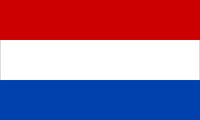New anti-terrorism measures approved by Dutch parliament

Prosecutors will be able to approve surveillance, infiltration, or wiretapping suspects even when they can't show a judge "reasonable suspicion" a suspect may have committed a criminal act.
The law was the latest of many enacted in the Netherlands since the Sept. 11 attacks onthe United States.
Earlier measures have included allowing the use of evidence gathered by the secret service in criminal trials, banning membership of a terrorist group, increased penalties for terrorism-related crimes; and spot searches of people at police discretion.
The new law will expand such spot searches, allowing police to carry out searches in "airports, industrial complexes, sports stadiums and government buildings."
Finally, the law increases the period of time a suspect can be held without charge from three days to 14 days.
"During this period grave concerns (of a crime) are no longer required in cases where a terrorist crime is suspected; a reasonable suspicion is enough," it said.
There has been little protest about the loss of civil liberties due to such laws in the Netherlands, where trust in government is traditionally strong.
Although Dutch prosecutors lost several high-profile cases against terrorism suspects in 2002 and 2003, they have won an equal number of high-profile convictions under the new laws. Most notable was the conviction in March of nine Muslim men of membership in the so-called "Hofstad" terrorist network, the Ap reports.
Subscribe to Pravda.Ru Telegram channel, Facebook, RSS!


